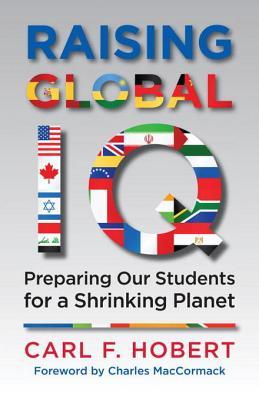
Raising Global IQ
Preparing Our Students for a Shrinking Planet
کتاب های مرتبط
- اطلاعات
- نقد و بررسی
- دیدگاه کاربران
نقد و بررسی

November 19, 2012
In this well-meaning but disjointed plan for curricular reform, Hobert, an instructor at the Boston University School of Education and founder of a conflict resolution nonprofit, argues for increased global education through five “curriculum upgrades,” including foreign language instruction, technology and media literacy, foreign travel, conflict resolution skills, and experiential education focused on service. The first part of the book focuses on language instruction, “technology and media literacy,” and boosting foreign travel and culturally based extracurriculars as necessary tools for combating post-9/11 fear and isolationism. The book shifts gears dramatically in Part II, turning attention to tools for teaching “preventative diplomacy” and opportunities for service learning. The ideas, though worthwhile, don’t build on each other as presented, and are therefore less convincing as part of a united plan. Likewise, Hobert relies heavily on laudatory personal anecdotes, all of which could have been condensed to make this the more useful “evaluation and strategic planning tool” that he claims he’s presenting. What readers and school leaders may find helpful is Hobert’s brief bulleted list of ideas for action at the end of each chapter explaining “What We Can Do Now,” and his urging schools to have a “Director of Global Programs” so these important ideas have a constant advocate in the battle for instruction time. Agent: Joanne Wyckoff, Carol Mann Agency.

November 15, 2012
Hobert, a Boston educator, proposes grading America's schools on how well curricula are training students in areas such as conflict-resolution skills and foreign languages, and encouraging travel abroad and service-related activities. "We have to use curricula in US schools to build bridges not moats," he writes. The author explains that at the time of 9/11, he was teaching French and Spanish in a Boston secondary school. He was dismayed by President George W. Bush's speech naming Iran, Iraq and North Korea as an Axis of Evil and distressed when suicide bombers in Jerusalem killed schoolchildren. This led him to create the nonprofit organization Axis of Hope. After reading the headline about the bombing, he decided to scrap his lesson plan for the day and conduct discussions with his classes on how the U.S. and other governments might intervene to defuse violence and lay a foundation for global peaceful coexistence. This spur-of-the-moment workshop was transformative. He decided that his vocation was to teach students how to think globally and to help create curricula for schools and community groups. Under the auspices of Axis of Hope, Hobert began conducting conflict-resolution workshops for middle and high school students and educators and teaching a course (Educating Global Citizens) at Boston University School of Education. Since the U.S. has the third-largest Spanish-speaking population in the world, and Mandarin Chinese is spoken by a majority of the world's population, the author proposes that these be incorporated in primary-through-secondary school education. Hobert weaves in a number of entertaining anecdotes about his own experience to illustrate his points. He describes traveling abroad with his parents, shepherding high school student trips and conducting a workshop about conflict resolution. A persuasive call for updating educational standards to meet the challenge of globalization.
COPYRIGHT(2012) Kirkus Reviews, ALL RIGHTS RESERVED.

























دیدگاه کاربران